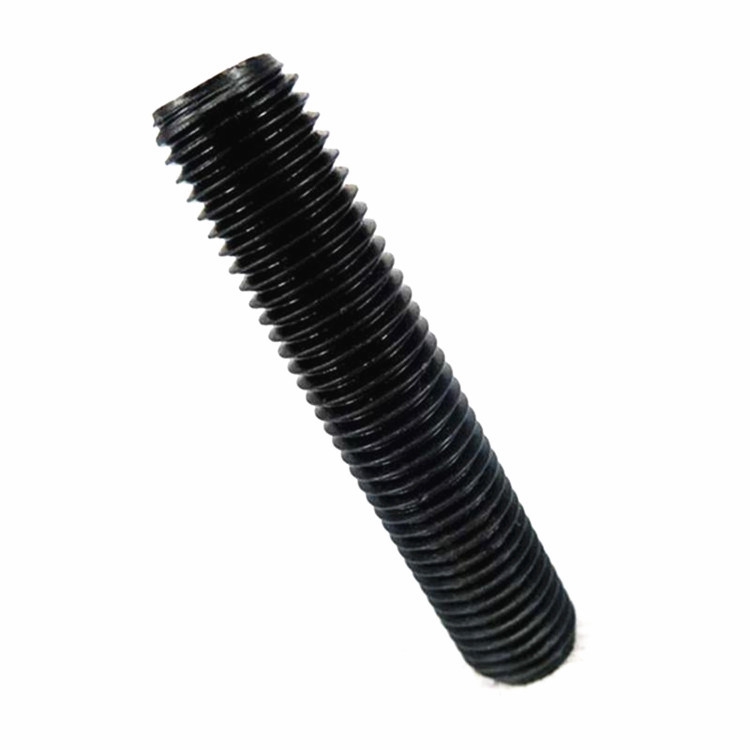High-Quality 8-Inch Bolts for Reliable Construction and Engineering Solutions
Nov . 06, 2024 18:37 Back to list
High-Quality 8-Inch Bolts for Reliable Construction and Engineering Solutions
Understanding the Value of 8 Inch Bolts in Construction and Manufacturing
In the world of construction and manufacturing, the smallest components often play the most significant roles. One such component is the 8 inch bolt, a seemingly simple piece of hardware that possesses a myriad of functionalities across various applications. Understanding the importance of these bolts can enhance our comprehension of their role in ensuring safety, efficiency, and structural integrity in a wide array of disciplines.
What Are 8 Inch Bolts?
The term 8 inch bolts refers to bolts that are approximately eight inches in length, though the actual size can vary slightly depending on the specific applications and manufacturing standards. Bolts are typically characterized by their size, thread pitch, material composition, and tensile strength. The inch measurement indicates that these bolts are primarily used in regions utilizing the imperial system of measurement, including the United States.
These bolts are crucial in several fields, ranging from construction and automotive to aerospace and machinery. Their applications can range from securing large structural components—such as beams and columns in buildings—to providing stability within machinery and equipment.
Material and Strength Considerations
One of the most critical factors when selecting an 8 inch bolt is the material from which it is made. Common materials include carbon steel, stainless steel, and alloy steel. Each of these materials offers unique properties suited to different environments. For instance, stainless steel bolts are preferred in corrosive environments due to their high resistance to rust and corrosion, while carbon steel bolts are favored for their strength and toughness.
Moreover, the tensile strength of a bolt is a significant consideration. Tensile strength refers to how much force a bolt can withstand before failing. In heavy machinery or construction, it is essential to choose bolts with high tensile strength to ensure safety and longevity.
8 inch bolts company

Applications in Construction and Manufacturing
In construction, 8 inch bolts are often used to connect structural steel members. They provide the necessary load-bearing capabilities to maintain the integrity of buildings, bridges, and other infrastructures. Each bolt contributes to the overall strength of a structure, ensuring that it can withstand environmental forces such as wind, earthquakes, and the weight of the materials used.
In manufacturing, these bolts are integral components in assembling machinery. They facilitate the joining of parts, ensuring that machinery functions smoothly and efficiently. Whether it’s in automotive manufacturing or equipment fabrication, the reliability of these bolts is paramount. A failure in a bolt can lead to significant operational downtime, safety hazards, and costly repairs.
Installation and Maintenance
The installation process of 8 inch bolts requires careful consideration of torque specifications. Proper torque ensures that the bolts are neither too loose, which could lead to failure, nor too tight, which could risk damage to the parts being fastened. Regular inspection and maintenance are also crucial to guarantee the longevity and effectiveness of these bolts. Over time, factors such as fatigue, corrosion, and environmental conditions can impact their performance.
The Future of Bolts in Technology
As industries evolve, the demand for precision-engineered components, including bolts, continues to grow. The advent of smart technologies and advanced materials promises to enhance the performance of 8 inch bolts. Innovations such as coatings for increased durability and the integration of smart sensors for real-time monitoring are trends that could redefine how these components are perceived and utilized.
In conclusion, the significance of 8 inch bolts extends far beyond their small size. They are vital components in ensuring the safety and functionality of various structures and machines. With proper care, maintenance, and technological advancements, the role of bolts in construction and manufacturing will continue to be critical as we advance into a future defined by innovation and complexity. Understanding their importance highlights the meticulous attention to detail required in engineering, construction, and manufacturing industries—an attention to detail that ultimately contributes to the safety and effectiveness of the systems we rely on daily.
Latest news
-
High-Quality Panel Stud Bolt Reliable Panel Stud Bolt Factory & Suppliers
NewsJul.08,2025
-
High-Precision Fine Thread Locknuts Manufacturer & Supplier Custom Solutions
NewsJul.08,2025
-
PH Imperial Stud Bolt – High Strength Fasteners from Leading Supplier & Factory
NewsJul.07,2025
-
High-Quality Allen Wrench Bolts Leading Factory, Company & Suppliers
NewsJul.07,2025
-
Wholesale Ball Stud Bolt - High Quality Supplier & Factory Price Reliable Wholesale Ball Stud Bolt Company
NewsJul.06,2025
-
High-Strength Alloy Bolts Manufacturer & Supplier Quality Alloy Fasteners Factory
NewsJul.06,2025
